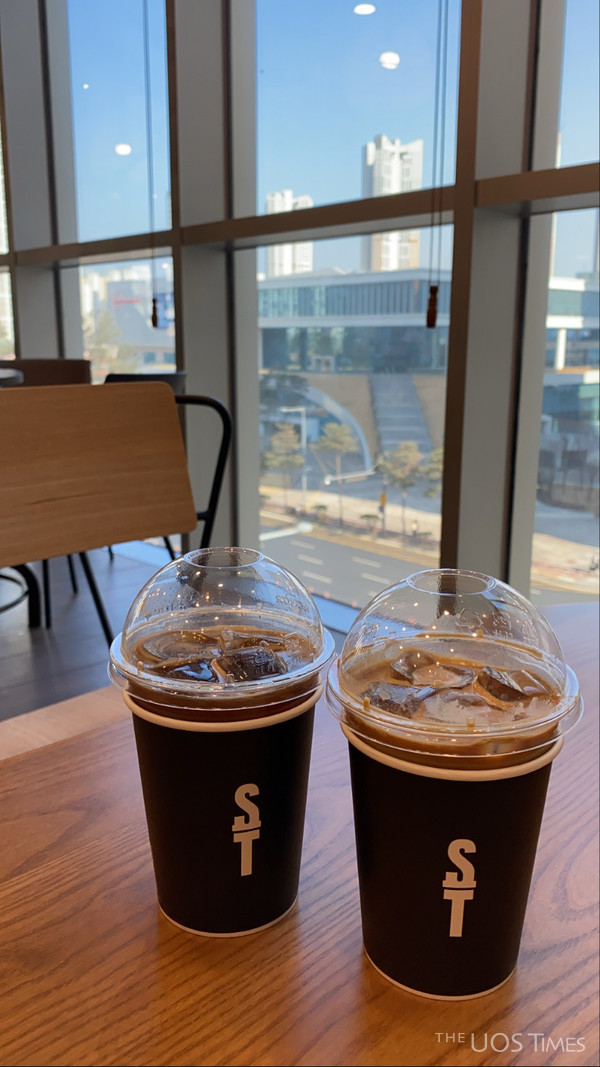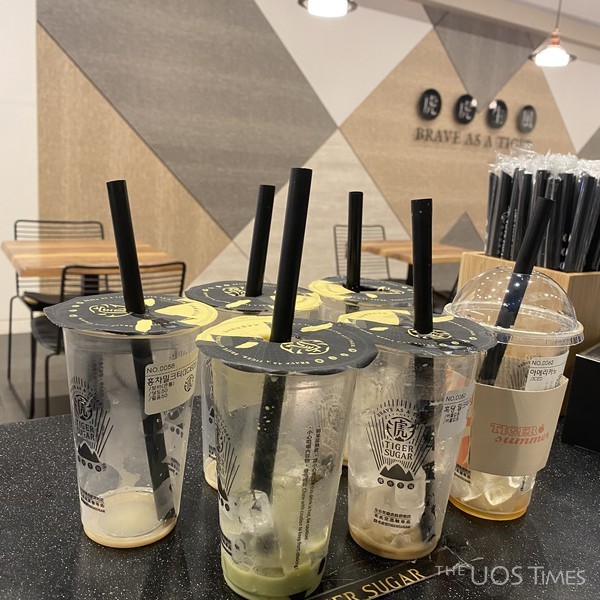As environmental issues become more serious than ever due to the indiscriminate consumption of resources, voices for environmental protection are heard on a global scale. According to statistics from the Korea Waste Association, Korea generated 497,238 tons of waste each day in 2019. In particular, Korea has the highest annual plastic consumption per person and is one of the countries with the highest consumption of disposable products. According to the Ministry of Environment, the annual use of disposable cups in Korea was 29.4 billion in 2018, a significant rise from 19.1 billion in 2009. In addition, the consumption of disposable products has been rapidly increasing recently owing to the influence of COVID-19. This situation is because as non-face-to-face consumption became more prevalent, the number of delivery services soared by about 30 percent compared to the previous year, and cafes were prohibited from serving beverages in multi-use cups. Numerous attempts have been made worldwide to avoid using disposable products, but they have proved futile due to the spread of COVID-19. According to the Ministry of Environment, plastic waste emissions increased by 18.9 percent last year compared to 2019. This year, emissions are likely to continue to surge. This article will discuss the use of disposable cups in cafés in detail.

Beginning in August 2018, the Ministry of Environment began prohibiting the use of disposable cups in cafes and fast-food restaurants to conserve resources and promote recycling. According to 2019 statistics, disposable cup use reduced by more than 75 percent, with multi-use cups now being used in more than 81 percent of stores. However, in February 2020, in response to the spread of COVID-19, the Ministry of Environment issued an official letter to local governments urging that disposable cups be temporarily permitted in stores. In addition, they issued guidelines for local governments to set standards for the use of disposable cups at social distancing level 4. According to the Seoul Metropolitan Government, disposable cups should be used only on customers' demand, even at social distancing level 4, similar to levels 1 to 3. However, most cafes serve beverages in disposable cups without asking for customers' preferences. In addition, each store adheres to its own standards, which may confuse customers. Under these circumstances, the use of disposable cups is highly controversial. Others argue that the use of disposable cups must be a temporary response to COVID-19 and that continuing to use disposable cups will seriously endanger the environment. Additionally, they point out that all eateries use multi-use containers, except for cafes. However, others say that it is a measure of customer anxiety and employee safety taken into account. They explain that it is an inevitable decision to reduce the risk of infection caused by multi-use containers.
Is it true that disposable products can prevent the virus infection from spreading? In March, 2020, a research team at the National Institute of Allergy and Infectious Diseases (NIAID) published a paper, which claimed that the COVID-19 virus stayed on the surface of objects for three days. The virus is said to survive for up to two days on stainless steel and up to three days on plastic surfaces. The number of viruses halved only after about five hours on stainless steel and seven hours on plastic. In other words, the risk of infection is not significantly different between disposable and multi-container. However, there is a need for the premise that the multi-use cup and personal tumbler have been washed well. In addition, the COVID-19 virus is found to survive on various objects such as tissue paper and glass for a certain period of time. As saliva is the primary route of COVID-19 infection, it is not important to determine whether to use multi-use or disposable products in public, but adhering to the basic hygiene norms is safe enough. According to Greenpeace, an international environmental organization, disposable plastics are not necessarily safer than multi-use containers when it comes to preventing the spread of COVID-19; in fact, discarded disposable products may cause additional problems that can contribute to the spread of the virus. They also explained that multi-use items are safe due to their ease of cleaning. They pointed out that people abuse disposable products solely for the sake of their psychological satisfaction.

City to Sea, a Bristol-based environmental organization, has proposed "#contactlesscoffee," a non-contact coffee sales campaign, to cafe owners in countries that prohibit the use of tumblers or multi-use cups. After the order is complete, the customer puts a personal tumbler on the checkout counter and steps back. The drink is then poured into the tumbler without being touched by the server. Serving drinks in this non-contact manner can help minimize the weekly consumption of millions of disposable cups. This not only helps limit the use of disposable cups, but also helps prevent the spread of COVID-19. Korea is also engaged in various campaigns aimed at reducing environmental pollution. On September 28, Starbucks hosted an eco-friendly event called "Reusable Cup Day," where they served drinks in reusable cups for the entire day. Starbucks stated that the event was planned to send a message about the importance of a sustainable planet, which they believe can be initiated and achieved by such small, eco-friendly actions. However, many criticized the event as "greenwashing," exaggerated marketing that does not contribute to actual environmental protection. This observation is because the majority of the reusable cups are made of polypropylene, a type of plastic commonly used in disposable packaging materials and delivery containers. In addition, some argue that the launch of MDs, such as cups, tumblers, and bags, every season by cafe franchises wastes resources and mass-produce new waste. They criticize companies that stress eco-friendliness as contradictory to launching limited editions of MD products. Therefore, individual practices are important; however, companies must adopt active and correct eco-friendly policies.
What actions can college students take to preserve the environment? In stores that allow the use of tumblers, one can make an effort to use tumblers as much as possible. However, the tumbler itself is not an eco-friendly product. Greenhouse gas emissions from tumblers are 24 times higher than those from paper cups and 13 times higher than disposable plastic cups. Tumblers must be used continuously if greenhouse gas emissions are to be reduced. Compared to using plastic cups, drinking from a tumbler every day for six months reduces greenhouse gas emissions by a factor of 12 and by a factor of 21 when done for a year. In other words, multi-use cups, such as tumblers, are eco-friendly when used for an extended period of time. Therefore, you should make using tumblers a habit. In addition, environmentally friendly consumption must be pursued in daily life. These include eco-friendly laundry detergents, solid toothpaste, and shampoo bars. As even the slightest action can have a significant impact, everyone should be conscious of environmental protection.
With the rapid increase in disposable waste emissions since the outbreak of COVID-19, many people believe that the use of disposables is unavoidable, despite their severe environmental pollution. Therefore, as the government transitions to a “living with COVID-19,” regulations prohibiting the use of disposable products must follow suit. While safety is paramount, any ambiguity regarding the ability of disposable products to prevent infection must be avoided. Resources are finite, and environmental issues are a universal concern for which everyone bears responsibility. Consequently, adequate awareness and willingness are critical to solve environmental problems.

